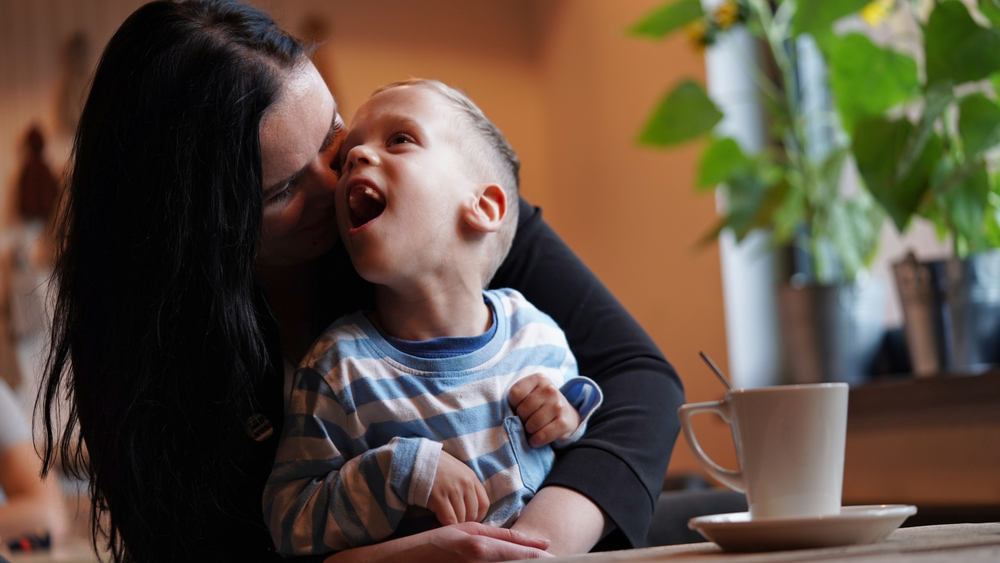Parents play a profound role in their child’s mental health and emotional wellbeing, beginning at birth. Secure parental attachments, for example, are integral to a young person’s social and emotional development.
The Psychiatric Times defines attachment as “a composite of behaviors in an infant, toddler, or young child that is designed to achieve physical and emotional closeness to a mother or preferred caregiver when the child seeks comfort, support, nurturance, or protection.”
There is empirical evidence that substantiates the formative interrelationships between attachment and child psychopathology, inflammation and health, neurobiology, school readiness and empathy, compassion, and altruism. Parental attachment is predictive of numerous developmental outcomes in children, such as general well-being, self-esteem, social competence with peers, problem-solving abilities, academic success, behavioral outcomes, resilience, and more.
A child’s mental health is inextricably linked to his or her parent’s mental health. Children of parents with a mental illness are at high risk for developing a mental illness themselves. One study concluded that “the increased psychiatric risk for children of mentally ill parents is due partly to genetic influences and partly to an impairment of the parent-child interaction because of the parent’s illness.” Children are most vulnerable to the impact of parental mental illness both physically and mentally from ages newborn to 5, as this is known to be a fragile period for brain development. According to the American Academy of Child & Adolescent Psychiatry this risk is particularly strong when a parent has one or more of the following: bipolar disorder, anxiety disorder, attention-deficit hyperactivity disorder (ADHD), schizophrenia, substance use disorder (SUD), or depression (also called major depressive disorder or clinical depression). Risk can be inherited from parents, through the genes. Hence, when both parents are mentally ill, the chance is even greater that the child may become mentally ill. A clinical review exploring the prevalence of psychopathology in children of parents with mental illness indicates that 15-23% of children, world-wide, live with a parent with a mental health disorder. In children of mentally ill parents, data suggests that the risk of problem development can be decreased by 40% with proper preventive interventions
Further Information and Support
For most of us, life can be very stressful, leading us to feel emotionally charged, which can cause anxiety, panic attacks, depression, and getting stuck in a cycle of being burdened with negative thoughts. Navigating through the challenges and emotional turmoil of life can be overwhelming, but you do not have to go through it alone. Engage Treatment is a Joint Commission Accredited professional psychological practice. We specialize in treating children, teens, and young adults struggling with depression and anxiety through community-focused treatment plans that incorporate a carefully selected combination of therapeutic interventions. Our compassionate, multidisciplinary practitioners are devoted to providing the highest quality of care that helps ignite positive change and enables clients to reach optimal health and well-being. Please do not hesitate to reach out for guidance. We are happy to answer questions and provide you with any additional information. Feel free to call us at 805-497-0605 or email us at [email protected]. You are also welcomed to get in touch by filling out our contact form. We look forward to connecting and having the opportunity to discuss how we might best be able to support you.
Contact Us
Westlake Campus:
IOP Program
2625 Townsgate Road, Suite 210
Westlake Village, California 91361
Agoura Campus:
Private Therapy & Parenting Program
30300 Agoura Road, Suite 250
Agoura Hills, CA 91301
805-497-0605
805-371-4862











© 2023 Engage Treatment Program, Inc. All Rights Reserved.
LGBTQ Friendly
About
• About Engage
• Our Team
• Career Opportunities
• Individual / Family Therapy
Resources
• Community Resources
• Blog
• FAQ
• Referring Clinicians
• Privacy Policy & SMS Terms






